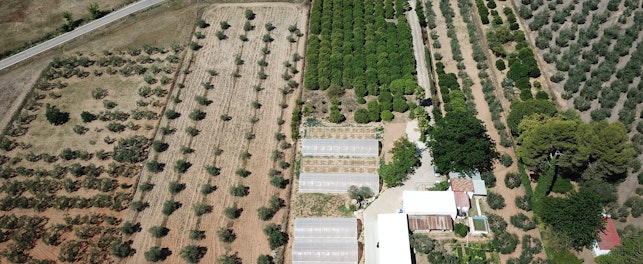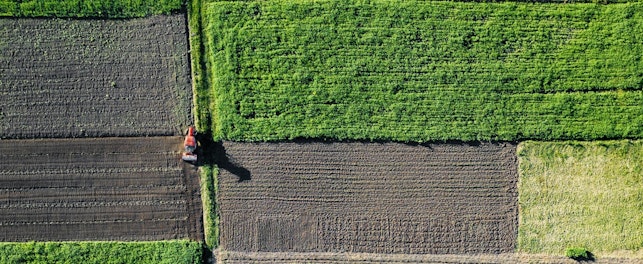Find out how SGS and Climate Neutral Group are helping farmers shift to carbon farming practices.
We are excited to announce that SGS and Climate Neutral Group have signed a cooperation agreement for a carbon sequestration program in agricultural soils.
The goal of the cooperation is to offer farmers the possibility to reduce levels of CO2 in the environment by enhancing carbon sequestration, while increasing soil fertility and resilience by implementing regenerative agriculture practices.
The AgriCarbonTM program was initially developed by Climate Neutral Group and registered with Verra. Verra is a nonprofit organization that operates standards in environmental and social markets, including the world’s leading voluntary carbon crediting program, the Verified Carbon Standard (VCS) Program. Farmers can gain credits by shifting to carbon farming practices that enhance soil health and contribute to climate change mitigation by storing carbon in soil.
Cobus Burger, Business Manager of Precision Farming Services at SGS, says: “SGS farming clients are presented with this opportunity to be guided and supported by SGS experts as well as CNG to unlock the road map of regenerative agriculture, so as to have a positive contribution in our fight against climate change while improving farming practices to create a more profitable and sustainable future for all.”
SGS and Climate Neutral Group both bring specific areas of expertise to the table. Climate Neutral Group has run similar programs in the dairy and livestock industry, while SGS has a wealth of experience in the agricultural sector through its Precision Farming Services.
“Protecting our soil is critical to solving the climate crisis, and agriculture plays a vital part. We are excited that CNG has pioneered a new soil carbon modeling and calculation tool which will allow us to scale AgriCarbonTM. Our vision is to enroll over 1 million ha into the AgriCarbonTM program with the support of SGS by 2025 in South Africa alone and we are currently rolling out AgriCarbonTM in Paraguay, Uruguay, and Argentina, thereby truly creating impact at scale.” says Franz Rentel, Country Director - CNG South Africa.
SGS is pleased to get this program up and running together with Climate Neutral Group for the benefit of the environment and farmers contributing to the management changes in their fields. The program is in line with our purpose to create a better, safer and more interconnected world.
SGS now provides the framework for the baseline calculation, alongside guidance for representative soil sampling. All testing is carried out at our laboratory in Somerset West, South Africa.
SGS supports farmers with their sustainable programs
SGS has been advising farmers on sustainable and proper management of their soils for many years, with a large number of farmers and crop consultants already using the SGS Precision Gateway platform. The data for existing users can easily flow into the new program.
Arguably, soil carbon is the most important component in soil as it affects almost all soil properties:
- Carbon, as soil organic matter, alters the physical, chemical, and biological properties of soils.
- Soil organic matter is a primary indicator of soil quality and improvements in soil organic matter lead to an increase in plant growth.
- High soil organic matter levels cause the soil to retain more water which results in better crop yields, reduces soil erosion, increases plant nutrient retention and increases biological diversity.
- Improved aggregation of soil particles results in better soil structure, allowing for movement of air and water through the soil, as well as better root growth.
The goal of sustainable and regenerative agriculture goes hand in hand with an increase in soil fertility and the increased resilience of the soil to climate fluctuations. This is also reflected in the long-term increase in the soil carbon content.
An increase in the soil carbon content can arise from organic fertilizer use (moving away from synthetic fertilizers to more environmentally friendly fertilizers, in combination with introducing microbial life), optimized crop rotation, low or no-tillage, or intercropping. The objective is to prevent the soil from drying out and eroding. It comes down to the right choice of crop variety, rotation, tilling system, the time of fertilization, the type of fertilizer and optimized water management.
About Climate Neutral Group – part of Anthesis
Climate Neutral Group (CNG) is a leading international carbon consultancy and offset provider which recently merged with the Anthesis Group: the largest team of globally dedicated sustainability experts, operating in 40 countries. CNG is dedicated to combating climate change and supports companies on their journey to net zero emissions by 2050 in line with the Paris Agreement. CNG South Africa specialises in carbon project development across Africa, with a team of experts who partner with local projects to help unlock the carbon revenue potential across the continent and generate premium carbon credits at scale. We passionately support over 3 500 companies globally in making a real climate impact and, as a result, have mitigated over 15 million tonnes of CO2 and improved the quality of life for thousands of people around the world. CNG is a founding partner and member of The International Carbon Reduction and Offset Alliance (ICROA) since 2008, B-Corp Certified since 2015 and an ISEAL subscriber since 2019. Together we are a group of highly motivated, inspirational, and enthusiastic professionals dedicated to tackling climate change and offering sustainable solutions.
For more information, please contact:
Cobus Burger
Business Manager - Precision Farming Services SGS
t: +27 18 285 7000
About SGS
We are SGS – the world’s leading testing, inspection and certification company. We are recognized as the global benchmark for sustainability, quality and integrity. Our 97,000 employees operate a network of 2,650 offices and laboratories, working together to enable a better, safer and more interconnected world.



